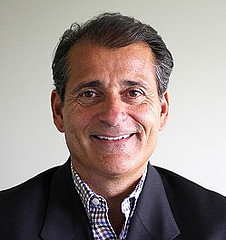Spending Trends 1996 – 2013: Health Care for Children
Spending on health care for children has risen in the past 20 years and a new article sheds light on where the money goes.
Frank Magliochetti
Personal health care spending for children skyrocketed 56 percent between 1996 and 2013, according to a new study published online by JAMA Pediatrics. Increased spending in health care for children reflects the increased spending for patients of all ages, according to the statistics presented by  the Centers for Medicare & Medicaid Services (CMS). The United States spent about $3.2 trillion for health care in 2015, or $9,990 per person, up 5.8 percent from the year before.
the Centers for Medicare & Medicaid Services (CMS). The United States spent about $3.2 trillion for health care in 2015, or $9,990 per person, up 5.8 percent from the year before.
Spending Trends for Children’s Personal Health Care in the U.S., 1996 – 2013
While health care spending on children continues to rise, there is very little data on differences in spending for specific conditions, age groups, gender, and type of care. There is also a paucity of information on how spending patterns have changed over the years. To shed light on these spending patterns, Joseph L. Dieleman, Ph.D., of the University of Washington, Seattle, and his team of researchers used 183 sources of data and 2.9 billion patient records gathered from the Institute for Health Metrics and Evaluation Disease Expenditure 2013 project database. They performed annual estimates for each year from 1996 through 2013 and used inflation-adjusted 2015 dollars to report estimates.
They found that spending for pediatric health care increased from $149.6 billion in 1996 to $233.5 billion in 2013. Spending per child rose from $1,915 in 1996 to $2,777 in 2013.
 Most of the money went for well-newborn care in inpatient settings, attention deficit/hyperactivity disorder (ADHD) and well-dental care. Payers spent $27.9 billion for inpatient well-newborn care, which was the largest condition leading to health care spending.
Most of the money went for well-newborn care in inpatient settings, attention deficit/hyperactivity disorder (ADHD) and well-dental care. Payers spent $27.9 billion for inpatient well-newborn care, which was the largest condition leading to health care spending.
ADHD and well-dental care services were the second and third largest conditions leading to health care spending in children, with $20.6 billion for ADHD care and $18.2 billion for well-dental care. At $9 billion, asthma care garnered the fourth highest level of spending.
The researchers found that, at $11,741, the greatest spending per child was for infants younger than 1 year in 2013. Spending per child increased over time, rising from $1915 in 1996 to $2777 in 2013. Ambulatory care among all types of care and inpatient well-newborn care, ADHD, and asthma showed the greatest growth.
Just over 30 percent of total children’s health care went for inpatient care, 38.6 percent went towards ambulatory care, and 7.8 percent was spent on retail pharmaceuticals in 2013. More was spent on males than on females.
The findings provide information about spending trends for child health care and serve as a guide for future spending. Payers can expect larger health care spending growth rates for inpatient well-newborn care and ADHD, for example, while health care professionals can gear up to provide an increased amount of care for these conditions.
“The next step should be analyzing the factors driving increased health care spending and determining whether changes in particular subcategories of spending have been associated with improvements in processes or outcomes. It is crucial to understand whether spending increases have been appropriate or misguided and how we might target spending increases and reductions now and in the future,” the authors conclude in a press release.
Source
http://jamanetwork.com/journals/jamapediatrics/fullarticle/2593700
http://media.jamanetwork.com/news-item/how-much-money-is-spent-on-kids-health-care-where-does-it-go/
Frank Magliochetti is Managing Partner for Parcae Capital
-
North Andover, Massachusetts
This column of posts is directed at the Healthcare Industry. Frank plans to release new sites dedicated to the industry. Frank currently assists companies who are building, restructuring, transforming and resurrecting there business’s. An example of his client base are, Xenetic Biosciences , IPC Medical Corp, Just Fellowship Corp, Environmental Services Inc., Parsons Post House LLC, ClickStream Corporation as well as having a business talk radio show; The Business Architect on the URBN network.








